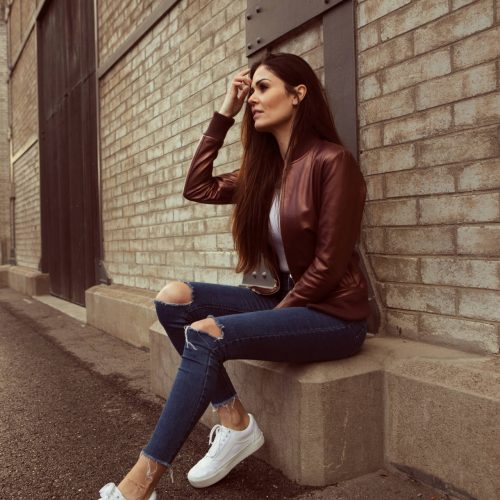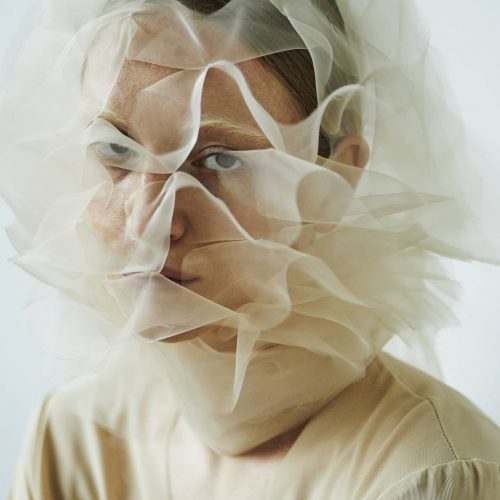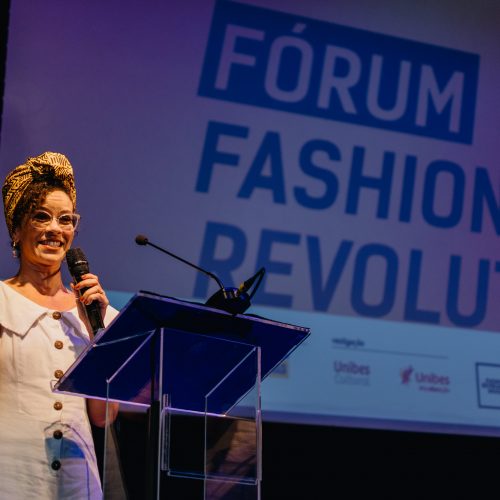Sustainable Fashion Designers in South Africa
Embedded within the South African consciousness is the sanctity of the natural world, and a collective strive toward a unified country for all. This is evident in the action taken by citizens in the recent global climate strikes, and country wide protests against gender based violence. Within the context of the fashion industry, this energy is imbued within some of South Africa’s most notable designers.
A myriad of complex and beautiful cultures adorns South Africa; and each can be embodied by their own expression through design. Since the democratization of the nation in 1994, the lifting of trade embargos and the liberation of people of colour – South African designers have seen tremendous visibility occurring through a strong emphasis on diversity and inclusivity; intersecting race, gender and sexual identity.
Jackie May, founder and editor of Twyg – a South African based sustainability online publication – points out the following;
‘’The uniqueness of some South African fashion design is not necessarily in the practice of making fashion, it's in how fashion is sustaining culture. Remaining true to their heritage, many of South Africa’s emerging designers are referencing their cultures. Think of Laduma Ngxokolo of Maxhosa Africa, Thebe Magugu and Sindiso Khumalo. Most exciting is how these designers combine environmental and cultural sustainability.’’
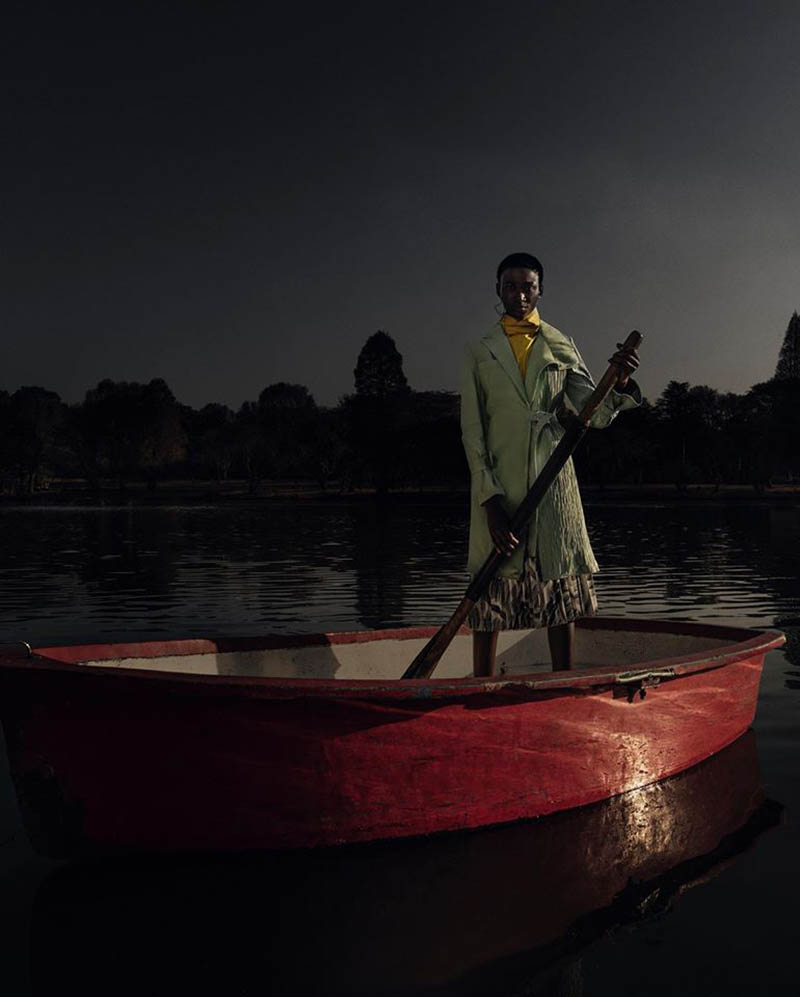
© Thebe Magugu
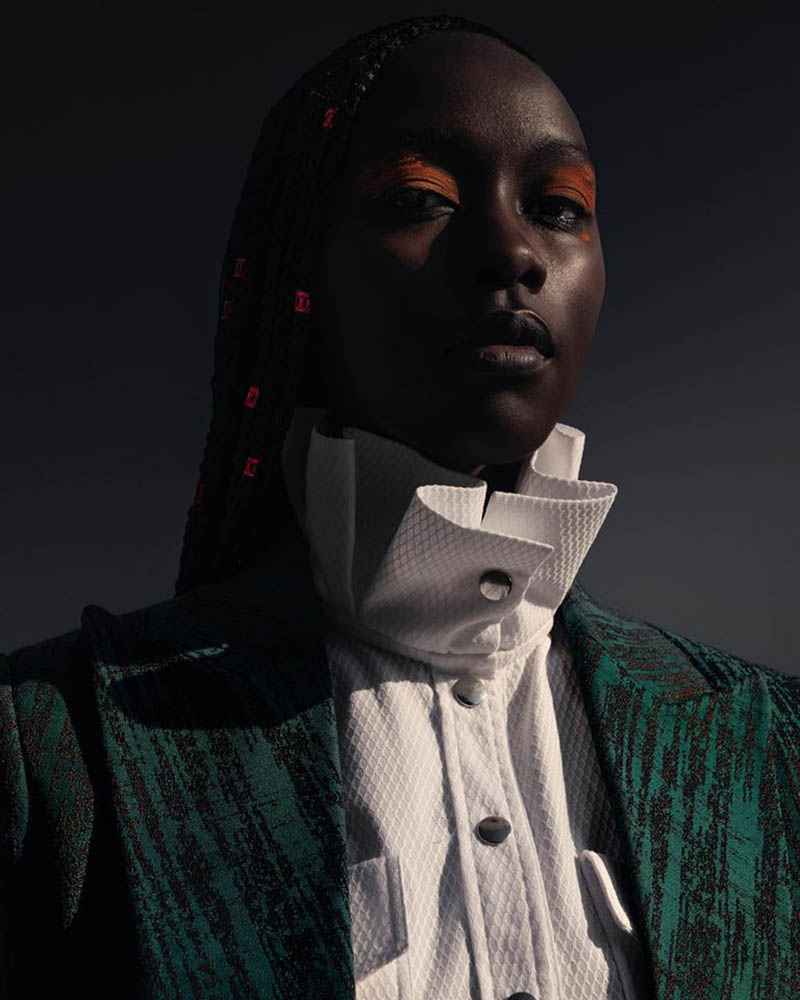
© Thebe Magugu
Thebe Magugu recently became the first African designer to win the prestigious LVMH prize for Young Fashion Designers. His collections are deeply attributed to his South African identity; each one exploring social and political issues characterizing the country. Through silhouette and form, Thebe Magugu communicates a transcendence over structural forces – and it is precisely this depth of work that edifies fashion as an art form.
Ready to wear label SELFI derives its name from the concept of ‘’self empowerment’’; a beautiful idea in the realm of ecological and social responsibility. Based in Cape Town, the brand embodies an energy of ‘’knowing exactly who one is’’ – and woven into its biodegradable garments is the notion of liberation and possibility. Celeste Arendse, the designer behind SELFI, creates clothing with an authenticity often forgot in this world of fast fashion. Think locally sourced linens draped in dreamy silhouettes – offered in shades of cardamom and rust.
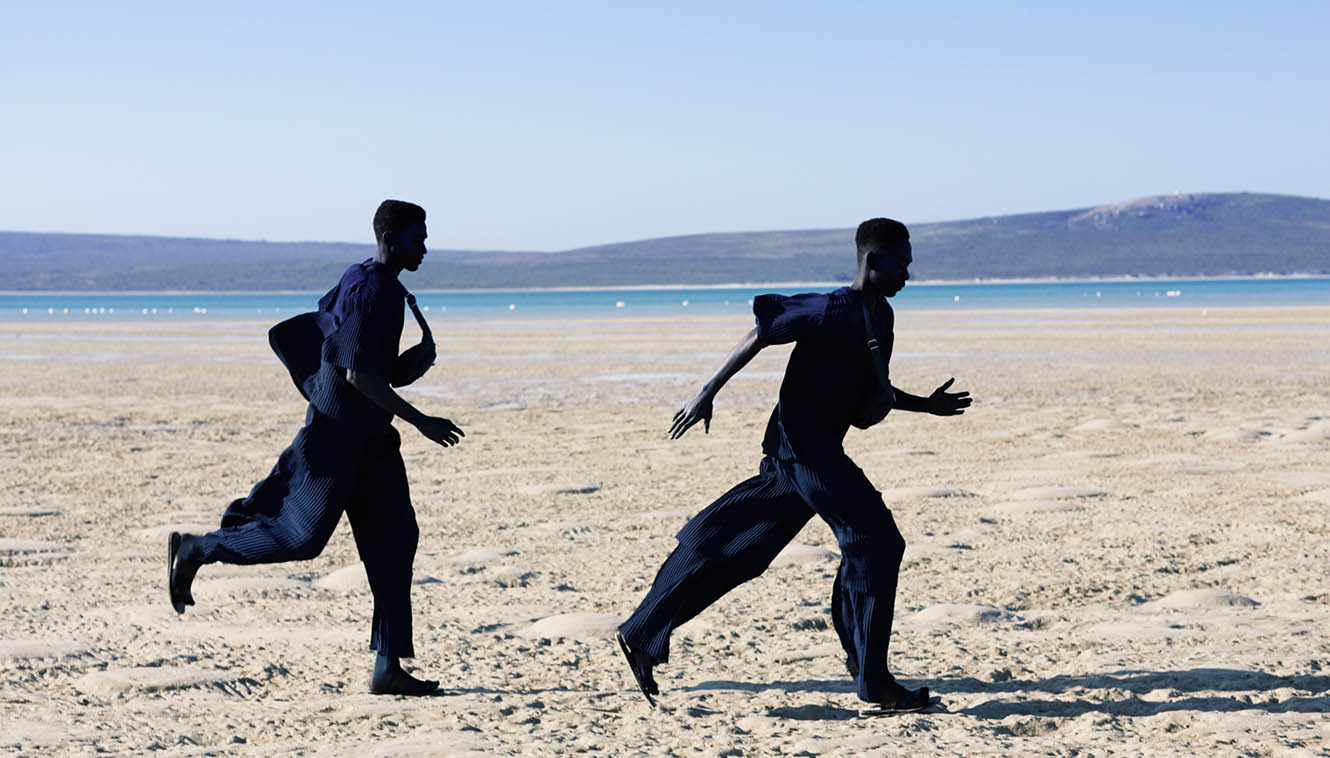
© Lukhanyo Mdingi
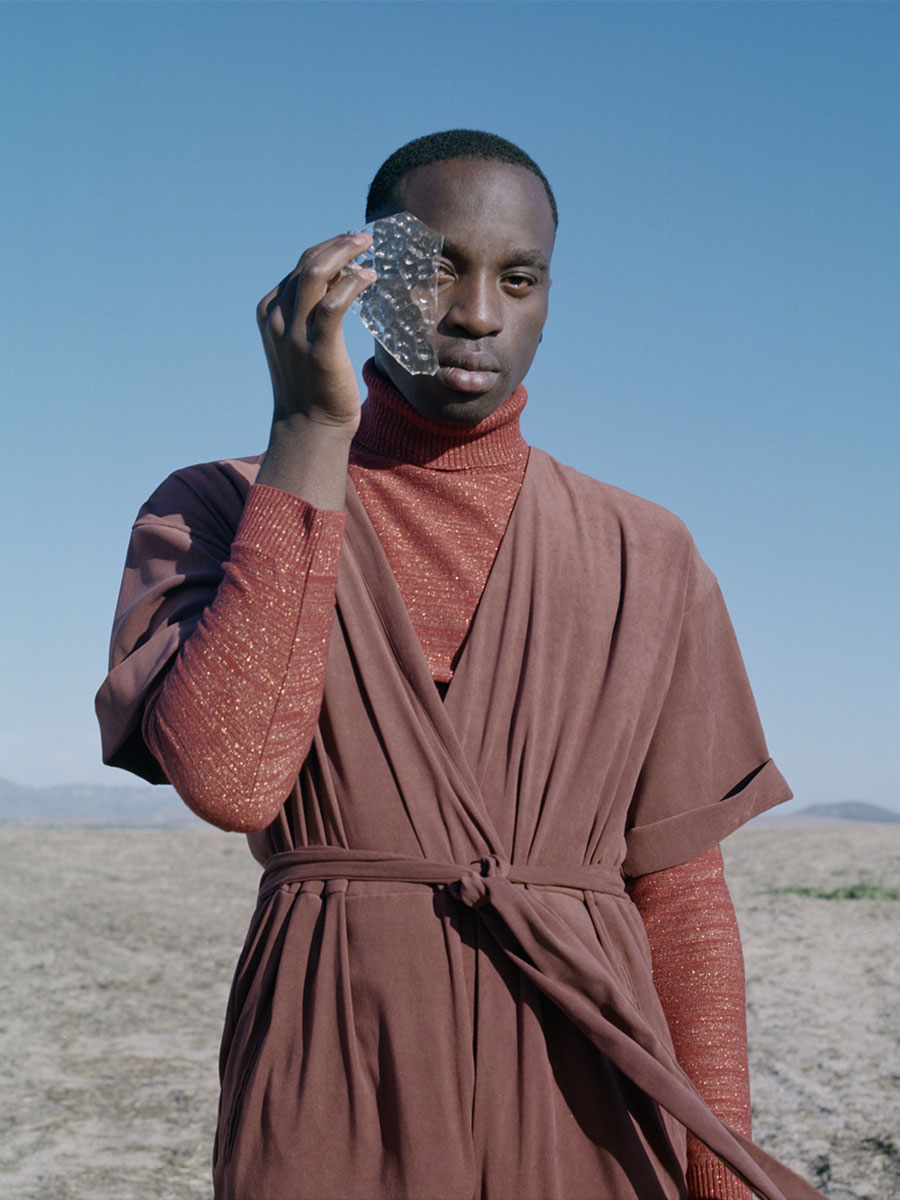
© Lukhanyo Mdingi
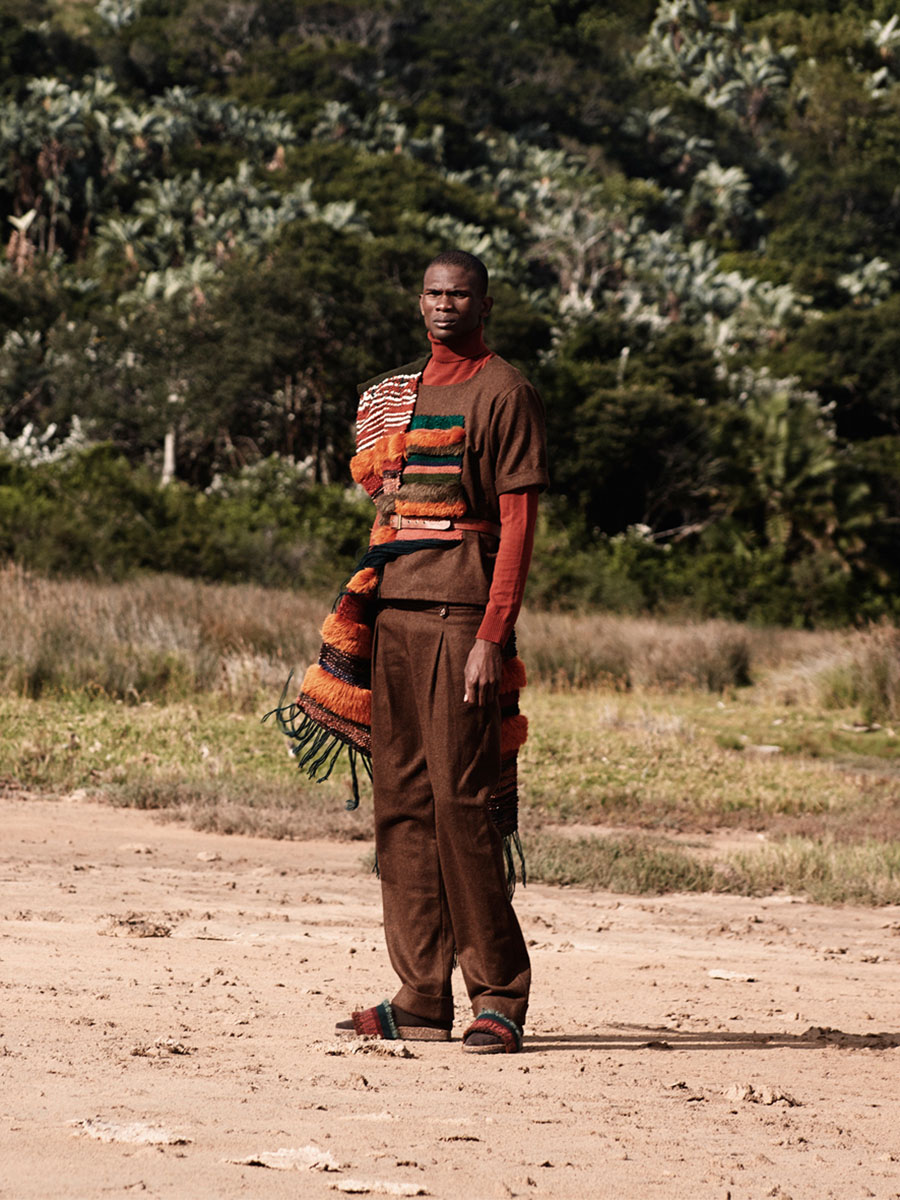
© Lukhanyo Mdingi
Lukhanyo Mdingi, another prolific designer, demonstrates what it truly means to ensure luxury need not be compromised in sustainability – and that it is indeed the exquisite garments that last a lifetime which render us the most stylish. Using natural fabrics such as wool, raw silk and linen in clean shades of earthen tones; each collection Lukhanyo produces further builds a timeless aesthetic – one that urges his clientele to connect with the world around them.

© Akina

© Akina
Laetitia Breedt started Akina label, an ethical swimwear brand in Cape Town, with a clear vision that wherever she could employ sustainable practices – she would. Akina’s website features an entire section detailing the sustainable aspects of the brand – from the recycled fabrics in the swimwear collections, to the EcoNyl yarn (made from post-consumer waste including fishing nets, fluff, and rigid textiles), to the fact that the cutting tables in the studio are made from recycled wood. Accounting for the intricate details allows Akina customers to be engaged with the brand and its continual journey toward minimising impact, and this precisely how transparency in the supply chain can be achieved.
Upcycling and re-using is Katekani Moreku’s preferred form of rebellion against the fashion system. Bold colours adorn his collections – and such is the excellence of Katekani’s tailoring, that the recycled fabric scraps and plastic linings disrupts how one can view everyday materials. Rejecting conformity is the essence of the brand – what better spirit to have when dismantling unsustainable systems?
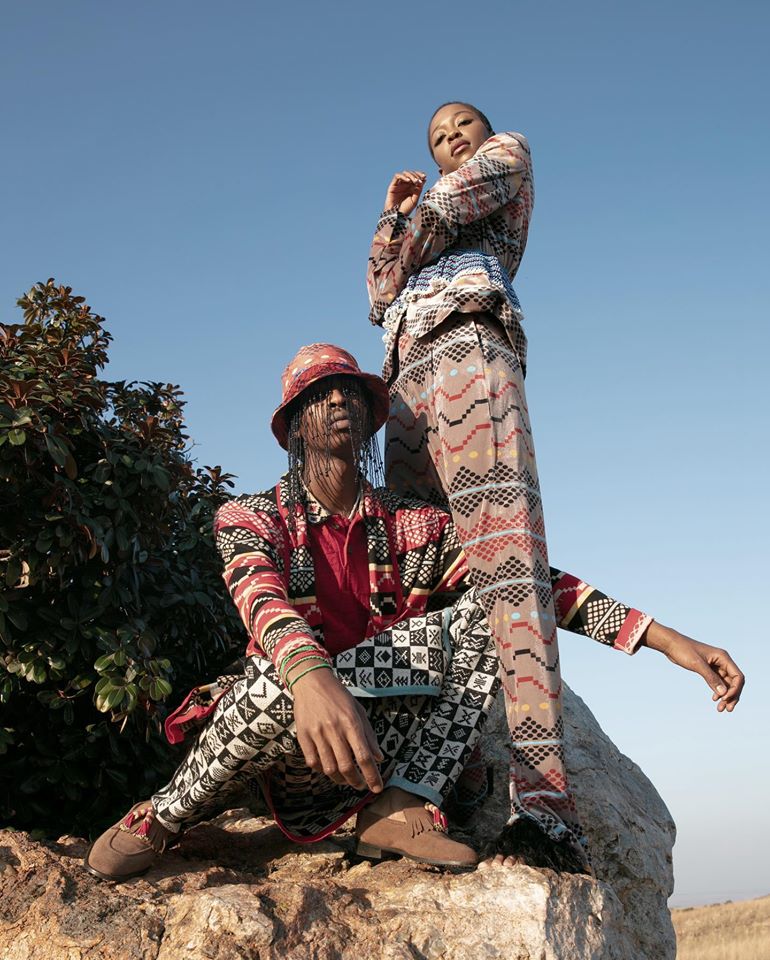
© MaXhosa
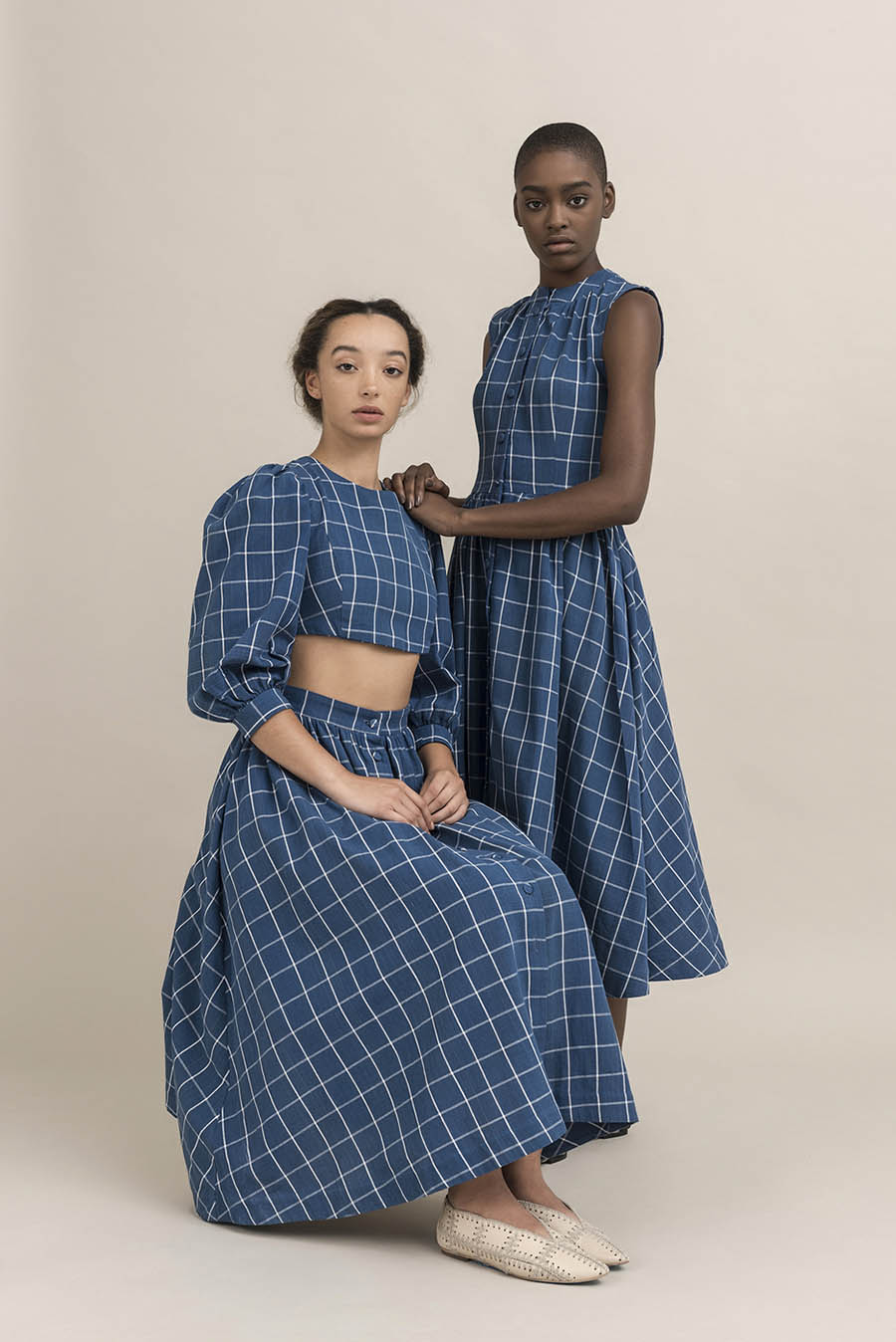
© Sindiso Khumalo
Sindiso Khumalo is a powerful force to be reckoned with – not only for her unique textile prints and dreamy collections, but for her voice in sustainability. Having addressed the United Nations on sustainability in fashion, she is a designer using her creative platform to elicit complex conversations of change. Sindiso works with NGO’s to produce handmade textiles for her collections - allowing social justice to influence the development of her supply chain. It is no surprise that she has garnered attention from Milan Fashion Week, Vogue Italia and The Smithsonian Museum of African Art – sparking an international appreciation for South African fashion.
Laduma Ngoxolo has created his label MaXhosa as a legacy of his Xhosa ethnicity. South African wool and mohair is woven into deep symbols and motifs, telling the story of this significant culture through its traditional knitwear attire worn in initiations and rituals. The immense success of MaXhosa locally and internationally inspires authentic expression – which is crucial for shifting the global culture of fashion from appropriation and exploitation toward a true celebration of diversity.
South Africa has long been considered a ‘developing’’ country due to the socio-economic and cultural trauma of colonialism and apartheid. Through the lens of sustainability as a practical model for building circular economies, employing bio-dynamic agricultural practices and promoting local production – there is a path forward for healing this globally imposed identity. This remains true for fashion – as a sustained, thoughtful shift can be felt in the landscape of South African design.

+ Words: Holly Beaton
Holly Bell Beaton is a writer and stylist with a passion for the intersection between biology, technology and design. Raised in Cape Town and of Swedish heritage, her travels across the world have encouraged and informed a global perspective regarding the future of fashion and its relationship to planetary health. She is currently working for a sustainable fashion label in Cape Town, South Africa.
Follow her on Instagram: Holly Beaton


